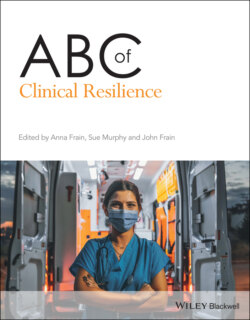Читать книгу ABC of Clinical Resilience - Группа авторов - Страница 9
Introduction
ОглавлениеHealthcare workers are human beings trying to help other human beings. This invariably leads to a discussion of human frailty and shortcomings. Yet, the skills and abilities of practitioners are awesome, and we often have an insufficient sense of awe regarding them – to listen and to understand the effects of suffering on patients, to use our senses to examine and to diagnose, to provide comfort and support, to restore to health, to witness both the greatest joys in patients’ lives as well as their darkest moments. Undoubtedly, this work requires the full use of our talents and is rewarded by the joy of practice.
Alongside this, advances in treatments across the multidisciplinary spectrum of healthcare in the past century enables us to do more and achieve more for patients and to genuinely feel we are making a difference to peoples’ lives. Those entering healthcare training should be confident they are entering an occupation at the cutting edge of human endeavour and characterised by the sense of the well‐being and resilience of those working in it.
Yet, the reality for many practitioners is very different. Confronted by the uncertainties and ambiguities of practice as well as the stresses of the healthcare environment, new entrants to the professions show increased reluctance to undertake specialty training, deciding to take career breaks or leave the profession completely (Figure 1.1). This established problem is so significant and widespread that it must be considered to genuinely threaten the future sustainability of modern healthcare. Resilience implies an ability to ‘bounce back’, to regain our well‐being after a distorting experience. The data suggests we are not bouncing back as well as perhaps we once did. This is impacting patient care and providing immeasurable harm to healthcare providers.
